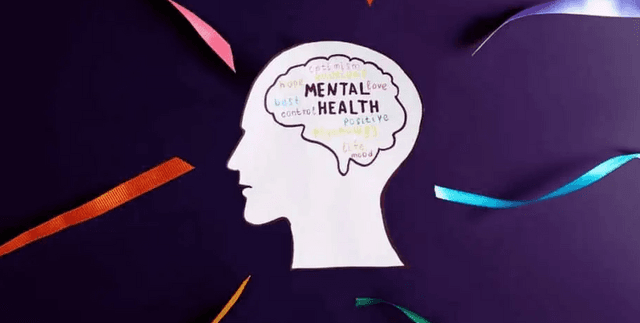Mental Well-being Indicators Dataset
Mental Health & Wellness
Tags and Keywords
Trusted By




"No reviews yet"
Free
About
This dataset offers an exploration into mental well-being, featuring a variety of characteristics related to text analysis, sentiment analysis, and psychological indicators. It is likely derived from posts or other text data. The features include readability indices such as Automated Readability Index (ARI), Coleman Liau Index, and Flesch-Kincaid Grade Level, alongside sentiment analysis scores (compound, negative, neutral, and positive). Additionally, it encompasses psychological aspects like economic stress, isolation, substance use, and domestic stress. This dataset covers a broad spectrum of linguistic, psychological, and behavioural attributes, making it suitable for analysing mental health-related topics within online communities or text.
Columns
- Timestamp: Represents the time the survey was submitted. The data spans from 27th August 2014 to 2nd February 2016, with approximately 292,000 valid entries.
- Gender: Indicates the respondent's gender, with 82% male and 18% female respondents among the 292,000 valid entries.
- Country: Identifies the respondent's country. There are 35 unique countries, with the United States being the most frequent at 59% of respondents. Contains 292,000 valid entries.
- Occupation: Details the respondent's occupation. Categories include Housewife (23%), Student (21%), and other (56%), across 292,000 valid entries.
- self_employed: A boolean field indicating whether the respondent is self-employed. About 10% (29,168) are true, 88% (257,994) are false, with 2% (5,202) missing values.
- family_history: A boolean field indicating if the respondent has a family history of mental illness. Approximately 40% (115,532) are true and 60% (176,832) are false, with 292,000 valid entries.
- treatment: A boolean field indicating whether the respondent has sought treatment for a mental health condition. This is almost evenly split, with 50% (147,606) true and 50% (144,758) false. All 292,000 entries are valid.
- Days_Indoors: A categorical field describing days spent indoors. Common responses include "1-14 days" (22%) and "31-60 days" (21%). It has 5 unique values and 292,000 valid entries.
- Growing_Stress: A boolean field indicating increasing stress. Approximately 34% (99,653) are true and 32% (92,726) are false. Out of 292,000 total entries, 192,000 are valid, but 100,000 are mismatched.
- Changes_Habits: A categorical field related to changes in habits. Responses include "Yes" (37%) and "Maybe" (33%). It has 3 unique values and 292,000 valid entries.
- Mental_Health_History: A categorical field pertaining to mental health history. "No" (36%) and "Maybe" (33%) are common responses. It has 3 unique values and 292,000 valid entries.
- Mood_Swings: A categorical field indicating the severity of mood swings. "Medium" (35%) and "Low" (34%) are prominent. It has 3 unique values and 292,000 valid entries.
- Coping_Struggles: A boolean field indicating struggles with coping. Approximately 47% (138,036) are true and 53% (154,328) are false. All 292,000 entries are valid.
- Work_Interest: A categorical field related to interest in work. "No" (36%) and "Maybe" (35%) are common responses. It has 3 unique values and 292,000 valid entries.
- Social_Weakness: A categorical field related to social weakness. "Maybe" (35%) and "No" (33%) are common responses. It has 3 unique values and 292,000 valid entries.
- mental_health_interview: A categorical field indicating willingness to discuss mental health in a potential employer interview. "No" (79%) is the most common response, followed by "Maybe" (18%). It has 3 unique values and 292,000 valid entries.
- care_options: A categorical field related to care options. "No" (41%) and "Yes" (33%) are common responses. It has 3 unique values and 292,000 valid entries.
Distribution
The dataset is provided as a CSV file, specifically named 'Mental Health Dataset.csv', with a file size of 31.1 MB. It consists of 17 columns and contains approximately 292,000 records. The data collection period spans from 27th August 2014 to 2nd February 2016.
Usage
This dataset is well-suited for a variety of applications and use cases, including:
- Mental Health Insights: Gaining a deeper understanding of how mental health issues manifest through linguistic patterns, sentiment, and psychological indicators in textual data.
- Predictive Modelling: Developing models to forecast or identify mental health outcomes based on text, which can support early intervention strategies.
- Community Engagement: Fostering collaboration among researchers, data enthusiasts, and mental health professionals to analyse data and devise solutions for mental health challenges.
- Data-Driven Interventions: Uncovering correlations and patterns between linguistic features, sentiment, and mental health indicators to inform policies and support systems that promote mental well-being.
- Educational Tool: Serving as a practical resource for learning about mental health analytics, sentiment analysis, and text mining techniques in a real-world context.
Coverage
The dataset covers a time range from 27th August 2014 to 2nd February 2016. Geographically, it includes responses from 35 distinct countries, with the United States accounting for 59% of respondents. Demographically, it captures information on gender (82% male, 18% female) and various occupations such as Housewife and Student. The dataset also includes self-employment status, family mental illness history, and whether treatment for a mental health condition has been sought. Data notes indicate that some fields, like 'self_employed', contain missing values, and 'Growing_Stress' has mismatched entries.
License
Attribution 4.0 International (CC BY 4.0)
Who Can Use It
This dataset is intended for a range of users and their specific needs:
- Researchers and Data Scientists: To analyse linguistic patterns and psychological indicators for insights into mental health.
- Developers: To create predictive models for identifying mental health outcomes from textual data.
- Mental Health Professionals: To collaborate on data analysis and develop solutions addressing mental health challenges.
- Policy Makers: To inform interventions and support systems promoting mental well-being.
- Students and Educators: As an educational resource for applying data science skills to mental health analytics and text mining.
Dataset Name Suggestions
- Mental Well-being Indicators Dataset
- Textual Mental Health Insights
- Online Mental Health Survey Data
- Psychological & Linguistic Health Dataset
- Mind Health Analytics Dataset
Attributes
Original Data Source: Mental Well-being Indicators Dataset
Loading...
Free
Download Dataset in CSV Format
Recommended Datasets
Loading recommendations...
